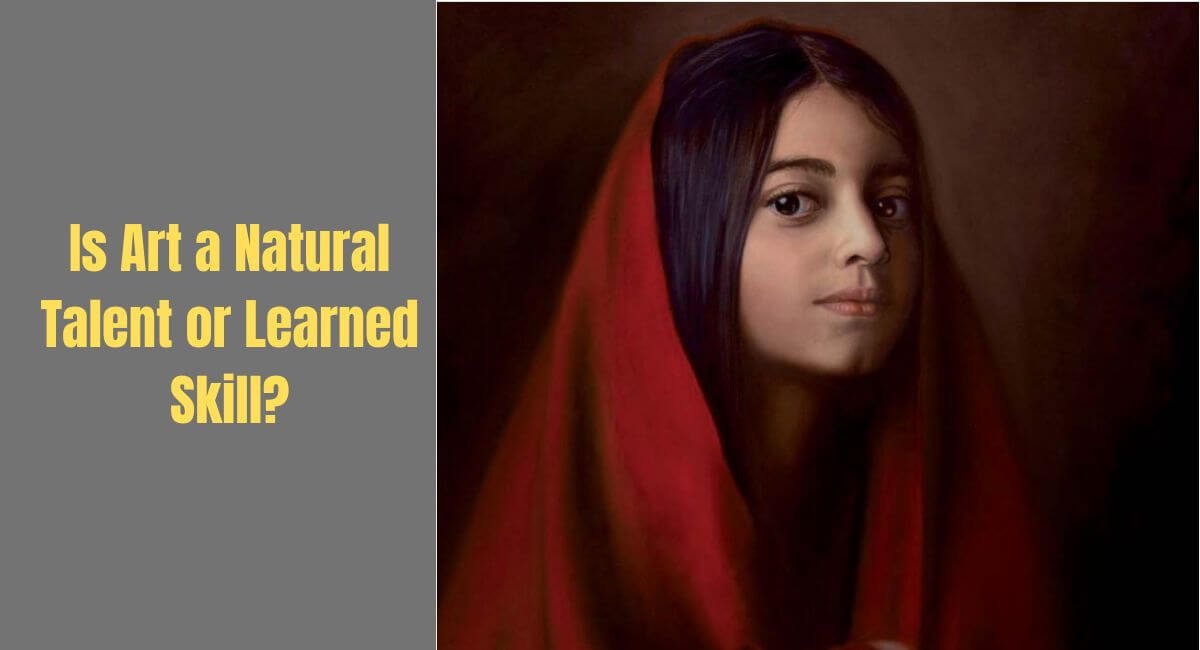Art has been a timeless expression of human creativity, dating back to ancient civilizations that left breathtaking cave paintings and intricate sculptures behind. The Renaissance masters to contemporary artists pushing the boundaries of modern art. The world has captivated to the power of artistic expression. A question that has long intrigued aspiring artists and art enthusiasts are whether art is a natural talent or a learned skill. Can anyone become an artist with enough practice and dedication? Is artistic ability solely reserved for born with an innate gift? This article will delve into this age-old debate, exploring various perspectives and shedding light on the factors that contribute to artistic talent.
The Nature vs. Nurture Debate
The debate about origin of artistic talent can trace back to the old nature vs. nurture debate. While some argue that creative ability is an inherent trait one is born with, others believe it is a skill that can develop and honed through practice and education. Let’s explore both sides of the argument in detail. Read about the best voice over services in Australia at thevoiceoverguy.com.au now.
Associate Research
Research in psychology suggests that Art is a Natural Talent or Learned Skill play a role in artistic ability. A study by the University of Liverpool found out specific genes are associated with creative talent, suggesting that artistic ability may have a genetic component (Zaidel et al., 2018). However, the study also found that environmental factors, such as education and exposure to art, are equally important in developing artistic skills.
Another study by the National Endowment for the Arts. It finds that individuals may have a natural predisposition towards specific artistic skills, such as drawing or painting, these skills can still be developed and improved through deliberate practice and training (Catterall et al.,2009). Moreover, according to the well-known book “Outliers” by Malcolm Gladwell, expertise in any field is not merely a matter of talent but of practice. Gladwell argues that individuals who become experts in their field, whether art, music, or sports, have typically invested at least 10,000 hours of deliberate practice into their craft.
The Argument for Art as a Natural Talent
Those who support the notion that art is a natural talent argue that artistic ability is something one is born with, just like musical aptitude or athletic prowess. According to this perspective, artists possess unique qualities that set them apart from others, such as heightened visual
perception, acute attention to detail, and a keen sense of aesthetics. They believe these inherent traits cannot be acquired through practice or education but are ingrained in an individual’s DNA.
Proponents of the natural talent argument cite historical examples of renowned artists. It displayed extraordinary artistic abilities from a young age. For instance, famous artists like Pablo Picasso and Vincent van Gogh are often cited as individuals who demonstrated prodigious creative talent even in their early years, suggesting that their artistic abilities were innate and not learned through practice or education. Explore about free and affordable architectural products at postdigitalarchitecture.com now.
The Argument for Art as a Learned Skill
On the other hand, some argue that art is a learned skill that can develop through persistent practice and education. According to this perspective, artistic ability is not something one is born with but acquired over time. It requires hard work, dedication, and a willingness to learn and improve.
Proponents of the learned skill argument point to the fact that many artists. It is including the most famous ones in history, did not display exceptional artistic abilities from an early age. Instead, they attribute their success to relentless practice and unwavering commitment to their craft. These artists underwent years of training. It experimented with different techniques, and learned from their mistakes to refine their skills and develop their unique artistic style.
Advocates of the learned skill argument highlight the importance of education and exposure to different art forms and styles. They believe formal education in art. It brings art schools, workshops, or mentorship programs. It can provide aspiring artists with the knowledge, techniques, and inspiration needed to cultivate their artistic abilities. Exposure to different art forms, cultures, and perspectives can broaden artists’ creative horizons and foster their artistic growth. Get to know about What is Youth Art Month?
The Role of Practice and Experience in Artistic Development
The nature vs. nurture debate is one factor that cannot be denied. It is developing artistic talent is the role of practice and experience. Like any other skill, creative ability requires persistent training and hands-on experience to improve and flourish.
Practice is not just about the quantity of time spent on creating art but also the quality of that practice. It involves pushing oneself to try new techniques, experimenting with different mediums, and challenging creative boundaries. Through training, artists can refine their technical skills, develop their artistic voice, and gain confidence.



